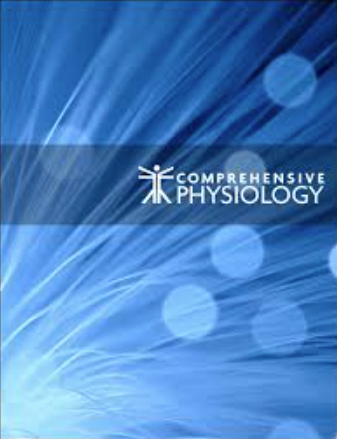Gopanandan Parthasarathy, Petra Hirsova, Enis Kostallari, Guneet S Sidhu, Samar H Ibrahim, Harmeet Malhi
求助PDF
{"title":"肝胆健康与疾病中的细胞外小泡。","authors":"Gopanandan Parthasarathy, Petra Hirsova, Enis Kostallari, Guneet S Sidhu, Samar H Ibrahim, Harmeet Malhi","doi":"10.1002/cphy.c210046","DOIUrl":null,"url":null,"abstract":"<p><p>Extracellular vesicles (EVs) are membrane-bound nanoparticles released by cells and are an important means of intercellular communication in physiological and pathological states. We provide an overview of recent advances in the understanding of EV biogenesis, cargo selection, recipient cell effects, and key considerations in isolation and characterization techniques. Studies on the physiological role of EVs have relied on cell-based model systems due to technical limitations of studying endogenous nanoparticles in vivo . Several recent studies have elucidated the mechanistic role of EVs in liver diseases, including nonalcoholic fatty liver disease, viral hepatitis, cholestatic liver disease, alcohol-associated liver disease, acute liver injury, and liver cancers. Employing disease models and human samples, the biogenesis of lipotoxic EVs downstream of endoplasmic reticulum stress and microvesicles via intracellular activation stress signaling are discussed in detail. The diverse cargoes of EVs including proteins, lipids, and nucleic acids can be enriched in a disease-specific manner. By carrying diverse cargo, EVs can directly confer pathogenic potential, for example, recruitment and activation of monocyte-derived macrophages in NASH and tumorigenicity and chemoresistance in hepatocellular carcinoma. We discuss the pathogenic role of EVs cargoes and the signaling pathways activated by EVs in recipient cells. We review the literature that EVs can serve as biomarkers in hepatobiliary diseases. Further, we describe novel approaches to engineer EVs to deliver regulatory signals to specific cell types, and thus use them as therapeutic shuttles in liver diseases. Lastly, we identify key lacunae and future directions in this promising field of discovery and development. © 2023 American Physiological Society. Compr Physiol 13:4631-4658, 2023.</p>","PeriodicalId":10573,"journal":{"name":"Comprehensive Physiology","volume":"13 3","pages":"4631-4658"},"PeriodicalIF":5.2000,"publicationDate":"2023-06-26","publicationTypes":"Journal Article","fieldsOfStudy":null,"isOpenAccess":false,"openAccessPdf":"","citationCount":"0","resultStr":"{\"title\":\"Extracellular Vesicles in Hepatobiliary Health and Disease.\",\"authors\":\"Gopanandan Parthasarathy, Petra Hirsova, Enis Kostallari, Guneet S Sidhu, Samar H Ibrahim, Harmeet Malhi\",\"doi\":\"10.1002/cphy.c210046\",\"DOIUrl\":null,\"url\":null,\"abstract\":\"<p><p>Extracellular vesicles (EVs) are membrane-bound nanoparticles released by cells and are an important means of intercellular communication in physiological and pathological states. We provide an overview of recent advances in the understanding of EV biogenesis, cargo selection, recipient cell effects, and key considerations in isolation and characterization techniques. Studies on the physiological role of EVs have relied on cell-based model systems due to technical limitations of studying endogenous nanoparticles in vivo . Several recent studies have elucidated the mechanistic role of EVs in liver diseases, including nonalcoholic fatty liver disease, viral hepatitis, cholestatic liver disease, alcohol-associated liver disease, acute liver injury, and liver cancers. Employing disease models and human samples, the biogenesis of lipotoxic EVs downstream of endoplasmic reticulum stress and microvesicles via intracellular activation stress signaling are discussed in detail. The diverse cargoes of EVs including proteins, lipids, and nucleic acids can be enriched in a disease-specific manner. By carrying diverse cargo, EVs can directly confer pathogenic potential, for example, recruitment and activation of monocyte-derived macrophages in NASH and tumorigenicity and chemoresistance in hepatocellular carcinoma. We discuss the pathogenic role of EVs cargoes and the signaling pathways activated by EVs in recipient cells. We review the literature that EVs can serve as biomarkers in hepatobiliary diseases. Further, we describe novel approaches to engineer EVs to deliver regulatory signals to specific cell types, and thus use them as therapeutic shuttles in liver diseases. Lastly, we identify key lacunae and future directions in this promising field of discovery and development. © 2023 American Physiological Society. Compr Physiol 13:4631-4658, 2023.</p>\",\"PeriodicalId\":10573,\"journal\":{\"name\":\"Comprehensive Physiology\",\"volume\":\"13 3\",\"pages\":\"4631-4658\"},\"PeriodicalIF\":5.2000,\"publicationDate\":\"2023-06-26\",\"publicationTypes\":\"Journal Article\",\"fieldsOfStudy\":null,\"isOpenAccess\":false,\"openAccessPdf\":\"\",\"citationCount\":\"0\",\"resultStr\":null,\"platform\":\"Semanticscholar\",\"paperid\":null,\"PeriodicalName\":\"Comprehensive Physiology\",\"FirstCategoryId\":\"3\",\"ListUrlMain\":\"https://doi.org/10.1002/cphy.c210046\",\"RegionNum\":2,\"RegionCategory\":\"医学\",\"ArticlePicture\":[],\"TitleCN\":null,\"AbstractTextCN\":null,\"PMCID\":null,\"EPubDate\":\"\",\"PubModel\":\"\",\"JCR\":\"Q1\",\"JCRName\":\"PHYSIOLOGY\",\"Score\":null,\"Total\":0}","platform":"Semanticscholar","paperid":null,"PeriodicalName":"Comprehensive Physiology","FirstCategoryId":"3","ListUrlMain":"https://doi.org/10.1002/cphy.c210046","RegionNum":2,"RegionCategory":"医学","ArticlePicture":[],"TitleCN":null,"AbstractTextCN":null,"PMCID":null,"EPubDate":"","PubModel":"","JCR":"Q1","JCRName":"PHYSIOLOGY","Score":null,"Total":0}
引用次数: 0
引用
批量引用

 求助内容:
求助内容: 应助结果提醒方式:
应助结果提醒方式:


